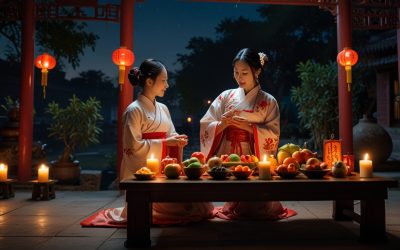Qixi Festival Date Ideas Inspired by Ancient China


The Qixi Festival, often called the “Chinese Valentine’s Day,” is one of the most beautiful and romantic traditions in China, celebrated on the seventh day of the seventh lunar month. Its origins trace back over 2,000 years to the touching legend of Niulang, the humble cowherd, and Zhinü, the heavenly weaver girl, whose love was forbidden by the gods. Banished to opposite sides of the Milky Way, they could only reunite once a year on this special night, crossing a bridge formed by sympathetic magpies. Over time, this tale of longing and reunion became deeply woven into Chinese culture, inspiring poetry, festivals, and rituals that emphasize devotion and hope for eternal love. Today, Qixi remains a cherished occasion for couples to express their feelings, but it is often celebrated in more modern ways such as dinners, gifts, or trips. However, looking back to how people in ancient China honored this day opens up an entirely different perspective, filled with symbolic acts and romantic customs. By drawing from these traditions, couples can celebrate Qixi in a way that feels both unique and meaningful, blending historical practices with modern sensibilities. The following date ideas are inspired by ancient customs, offering timeless ways to connect with your partner and embrace the spirit of love that Qixi represents.
Sharing Poetry Under the Stars

Poetry was one of the highest forms of art in ancient China, often used not only as a creative outlet but also as a way of expressing deep and complex emotions that words in everyday conversation could not capture. During Qixi, women in particular would compose verses under candlelight, sometimes offering them to Zhinü in hopes of gaining blessings for skill, beauty, and love. In many cases, these poems were filled with longing, desire, and admiration, reflecting the same emotions found in the legend of the cowherd and the weaver girl. Couples today can recreate this profoundly romantic act by dedicating an evening to sharing poetry with one another under the stars. Imagine finding a quiet spot in a garden, by a riverbank, or even on a rooftop, where the night sky above becomes your canopy. Bringing along collections of Tang or Song Dynasty poetry can set the mood, while writing your own verses allows you to channel the same emotions ancient lovers once felt. Reciting lines to each other, whether soft and playful or heartfelt and serious, creates an intimate moment of vulnerability and connection. This experience not only revives a lost art but also allows couples to slow down, focus on one another, and let words carry the weight of affection in a way that feels both ancient and timeless.
Crafting Together Like Ancient Artisans
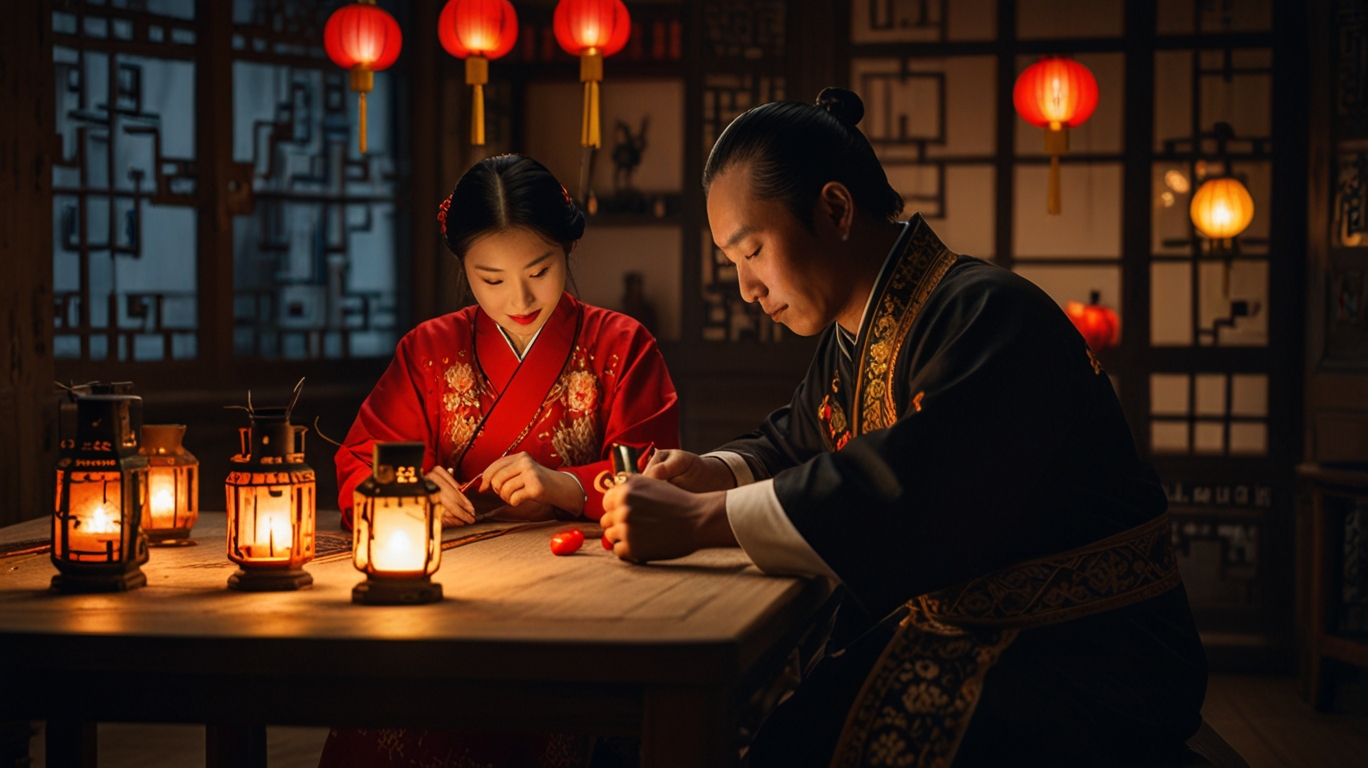
The Qixi Festival was closely tied to demonstrations of skill, particularly in weaving, embroidery, and craftsmanship. Zhinü, the weaver girl of the legend, was admired for her ability to create beautiful textiles, and her talents became a symbol of diligence, artistry, and devotion. In ancient times, women would gather during Qixi to display their needlework, thread needles under the moonlight to test their skill, and even craft small tokens meant to honor the goddess and attract blessings for love and marriage. This cultural tradition can inspire modern couples to spend their Qixi date engaging in some form of hands-on crafting together, creating something meaningful as a pair. For instance, couples might try their hand at making lanterns to light up the evening, practicing simple calligraphy strokes on parchment, or even attempting embroidery or paper cutting — all of which carry a strong sense of Chinese artistry. The act of crafting together encourages patience, teamwork, and creativity, requiring both partners to focus on the process rather than the outcome. In the end, the completed item becomes a tangible keepsake, a symbol of the time and care poured into not only the activity but also the relationship itself. Much like Zhinü’s weaving symbolized eternal love, your shared creation can embody the lasting bond you are building together.
Stargazing on the Seventh Night

One of the most iconic customs of the Qixi Festival was stargazing, as the night sky held central significance to the celebration. According to legend, Niulang and Zhinü are represented by the stars Altair and Vega, separated by the Milky Way, able to meet only once a year on this exact night. For centuries, lovers gazed at these stars together, believing that doing so would strengthen their own bond and bring them luck in love. In rural China, families would often spend the night outdoors, telling stories of the celestial lovers, while couples quietly wished for eternal togetherness. This ancient practice can be reimagined as a romantic and simple date idea for modern couples. Find a quiet location away from the blinding lights of the city — a hilltop, a lakeside, or even an open field — and let the stars become your backdrop. Bringing along a telescope or stargazing app can enrich the experience by helping you identify the stars of the legend. But even without tools, lying on a blanket side by side, pointing out constellations, and whispering wishes into the night creates a bond that feels both cosmic and personal. Stargazing on Qixi is more than just admiring the night sky; it is about stepping into a centuries-old ritual, feeling connected to generations of lovers before you, and being reminded that love is something vast, enduring, and as infinite as the universe above.
Cooking a Feast Inspired by Ancient Recipes
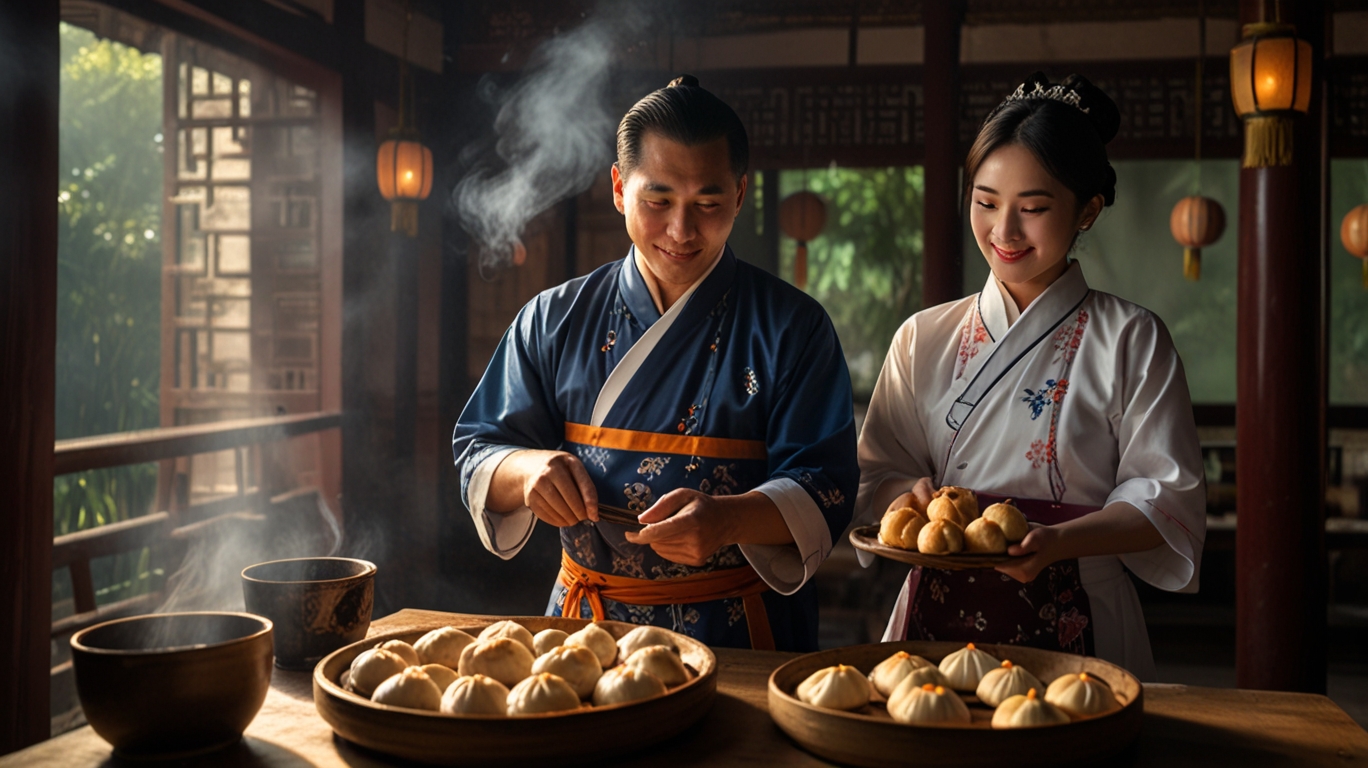
Food has always been an integral part of Chinese festivals, and Qixi was no exception. In the past, young women would prepare special pastries and offerings known as “Qiaoguo” — crisp, fried treats shaped like flowers, animals, or intricate patterns. These foods were often shared with friends, family, and loved ones as symbols of prosperity, happiness, and romantic blessings. Preparing and sharing food on Qixi was not just about satisfying hunger; it was about demonstrating skill, creativity, and thoughtfulness, values deeply associated with the weaver girl’s talents. Couples today can bring this tradition back to life by cooking together, drawing inspiration from recipes that date back centuries. Making dumplings, pastries, or even attempting to replicate Qiaoguo can turn the evening into a culinary adventure. The process of preparing the food, kneading dough side by side, shaping dumplings with laughter, or frying pastries together, creates an environment of intimacy and teamwork. Sharing the finished meal then becomes an act of love, a celebration not only of the festival but also of your ability to create joy together. Cooking a Qixi feast is more than a practical date idea — it is a way of honoring tradition, deepening communication, and nourishing both the body and the relationship.
Visiting Temples or Gardens
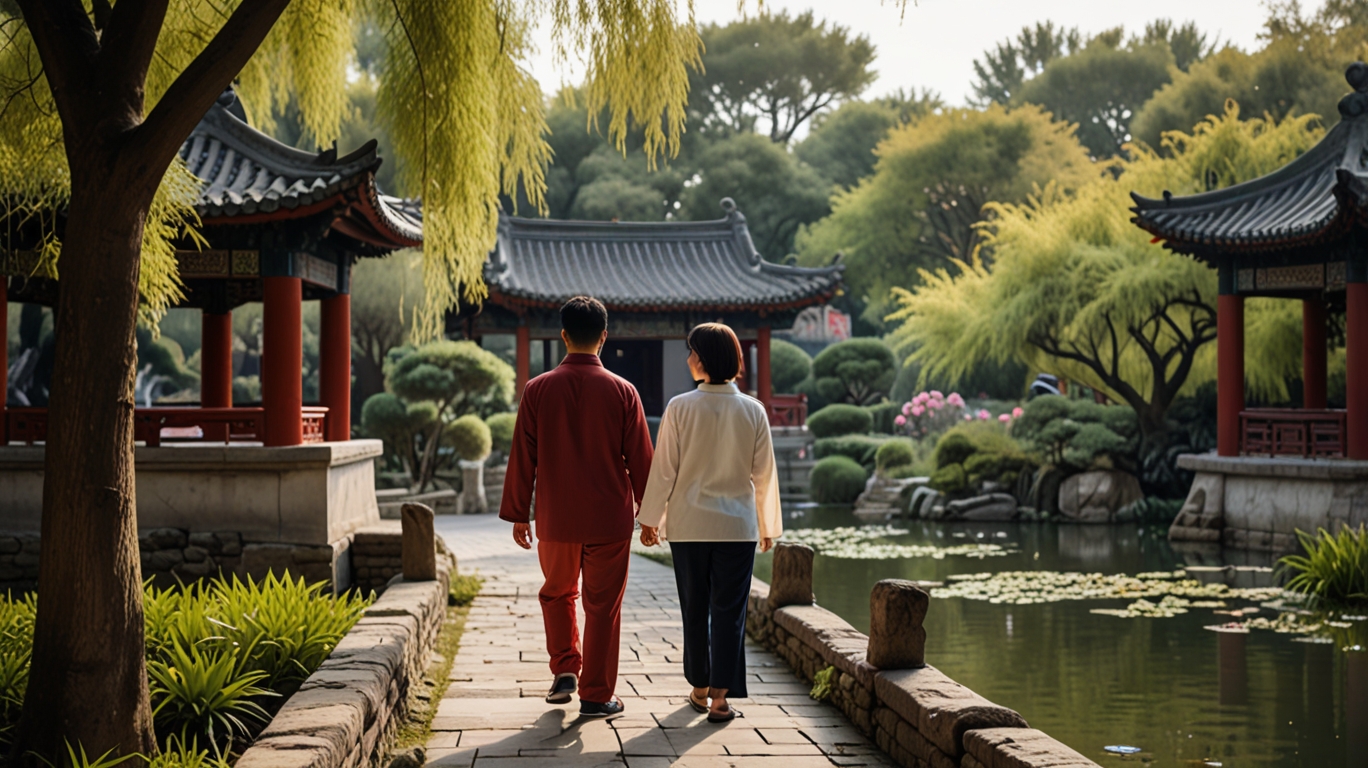
In ancient times, Qixi was a festival of prayer as much as it was of love. Women often visited temples dedicated to Zhinü, offering fruits, flowers, and their best needlework in hopes of receiving blessings for romance, fertility, and household skill. These visits carried deep symbolic meaning, reflecting devotion not only to the goddess but also to the ideal of harmonious love. Couples today can capture the same spirit of serenity and reflection by visiting cultural sites such as temples, shrines, or even classical Chinese gardens that embody the same sense of tranquility. Walking hand in hand through a historic garden filled with lotus ponds, stone bridges, and winding pathways offers couples the chance to slow down and reflect on the values that make a relationship enduring. The act of pausing to admire the beauty of ancient architecture, or lighting incense together in a temple, is more than just a romantic gesture; it is an opportunity to connect with the spiritual and cultural roots of the festival. Such moments away from the noise of everyday life invite deeper conversations, reflection, and gratitude, creating memories that are both peaceful and profound.
Exchanging Handcrafted Love Tokens
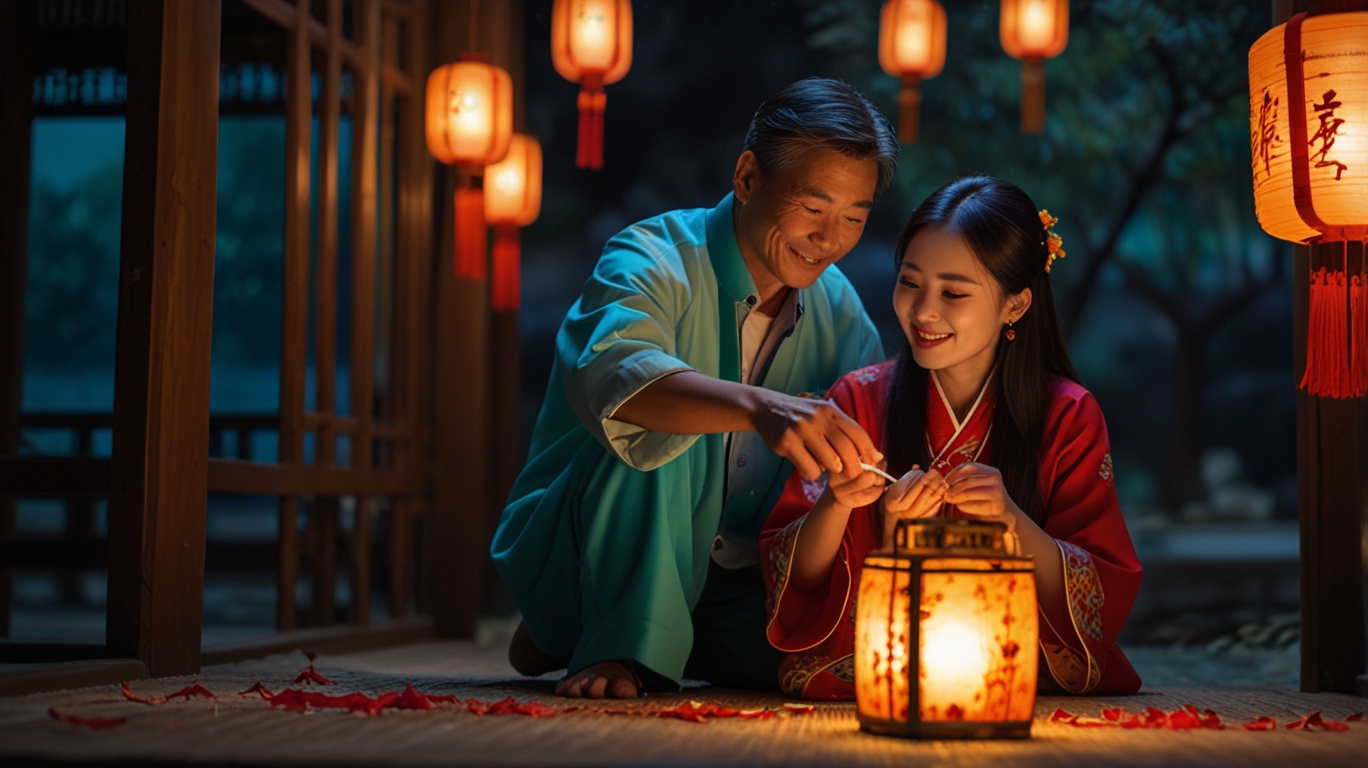
Gift-giving during Qixi was never about extravagance but about sincerity and effort. In the past, young women would often showcase or gift their embroidery to demonstrate devotion and skill, while men might carve simple tokens or offer written words of affection. These handmade expressions carried immense weight because they were personal, unique, and impossible to replicate. Couples can honor this tradition by exchanging handcrafted gifts or tokens of love on Qixi. This could be as simple as writing a heartfelt letter, folding origami cranes that symbolize longevity and love, or creating small keepsakes like a hand-painted card or a crafted bracelet. Unlike store-bought presents, these tokens represent time, thought, and emotion, which often mean far more than material value. In giving and receiving such gifts, couples echo the sincerity of ancient lovers who valued effort and authenticity above all else. It becomes an act of vulnerability, a way of saying, “I value you enough to create something with my own hands.” This simple but powerful gesture is a perfect way to end the celebration, leaving both partners with not just a gift, but a memory tied to tradition and love.
RELATED POSTS
Top 3 Traditions of Qixi Festival You Need to Know
The Qixi Festival, also known as the Double Seventh Festival, is one of the most cherished traditional celebrations in China, often referred to as the “Chinese Valentine’s Day.” Rooted in the legend of the Cowherd and the Weaver Girl, this holiday has been observed...
Brazil’s Dia dos Namorados: Love in the Tropics
Dia dos Namorados, Brazil’s answer to Valentine’s Day, is a celebration deeply infused with culture, passion, and the warm rhythms of the tropics. While many countries commemorate love on February 14th, Brazilians set their hearts on June 12th—creating a festive blend...
